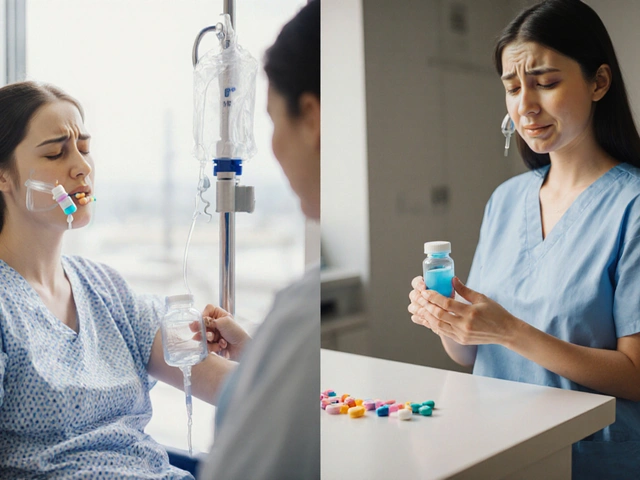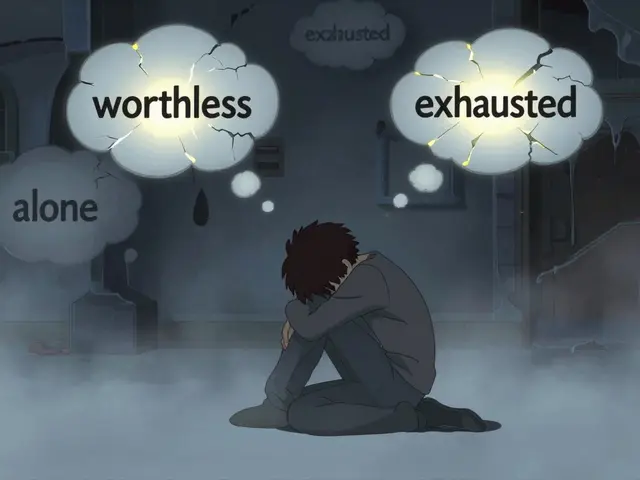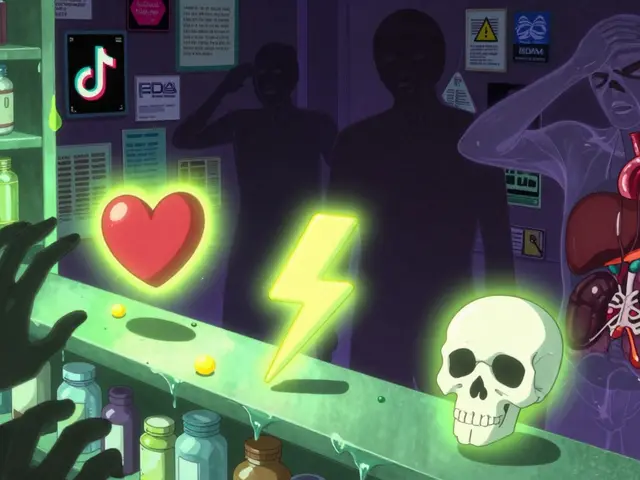Most people keep their medications in the bathroom. It’s convenient-right next to the sink, easy to reach after brushing your teeth. But here’s the truth: storing medications in the bathroom is one of the most common-and dangerous-mistakes you can make with your health.
Why the Bathroom Is the Worst Place for Medicine
Bathrooms are humid. They get hot. They flood with steam every time someone showers. That’s not just uncomfortable-it’s deadly for your pills, patches, and inhalers. The ideal storage temperature for most medications is between 59°F and 77°F (15°C-25°C). Bathrooms? They regularly hit 90°F during a hot shower and stay at 80-100% humidity. That’s not just outside the safe range-it’s actively destroying your medicine. Moisture causes chemical breakdown. Tablets absorb water and start to crumble. Capsules turn sticky or brittle. Liquid medicines separate. Insulin, a protein-based drug, loses its effectiveness if it gets too warm. Nitroglycerin, used for heart attacks, can become useless in just weeks if stored in a steamy cabinet. Birth control pills? The FDA found humidity can reduce their effectiveness by up to 35%. And it’s not just about potency. A study in Circulation showed that patients storing beta-blockers in the bathroom had inconsistent blood pressure control 30.2% of the time. That’s not a small risk-it’s a life-threatening one.What Happens When Medication Goes Bad?
You might think, “It’s just a pill. It’ll still work, right?” Wrong. Degraded antibiotics won’t kill the infection. Instead, they let bacteria survive and grow stronger. That’s how antibiotic resistance spreads. The World Health Organization calls this a global crisis-and improper storage is part of the problem. Anticoagulants like warfarin, if weakened, can cause dangerous clots. Antihistamines might fail to stop a severe allergic reaction. Blood glucose test strips, though not drugs, show what happens: when exposed to bathroom humidity, they give wrong readings in 68% of cases, leading to dangerous insulin dosing errors. And it’s not just the medicine itself. Expired or degraded pills can look fine. No mold. No weird smell. But they’re no longer safe. Great Ormond Street Hospital in London found that 4.3% of pediatric medication errors came from using old or damaged drugs stored in bathrooms.Who’s at Risk?
It’s not just about the medicine losing strength. Bathrooms are public spaces. Kids climb on counters. Teens rummage through cabinets. Pets jump up. The CDC says 70% of misused prescription opioids come from home medicine cabinets-and most of those are in bathrooms. A 2022 NIH study found that 80% of U.S. households store meds in easily accessible places like bathroom counters. Among households with children, 63% kept high-risk drugs within reach. That’s not negligence-it’s ignorance. The American Academy of Pediatrics says all medications should be locked away. But most aren’t. And it’s not just kids. Elderly patients often forget they’ve already taken a pill because they can’t find it. If their pills are scattered across the sink, the toilet tank, or the shower caddy, they’re more likely to double-dose.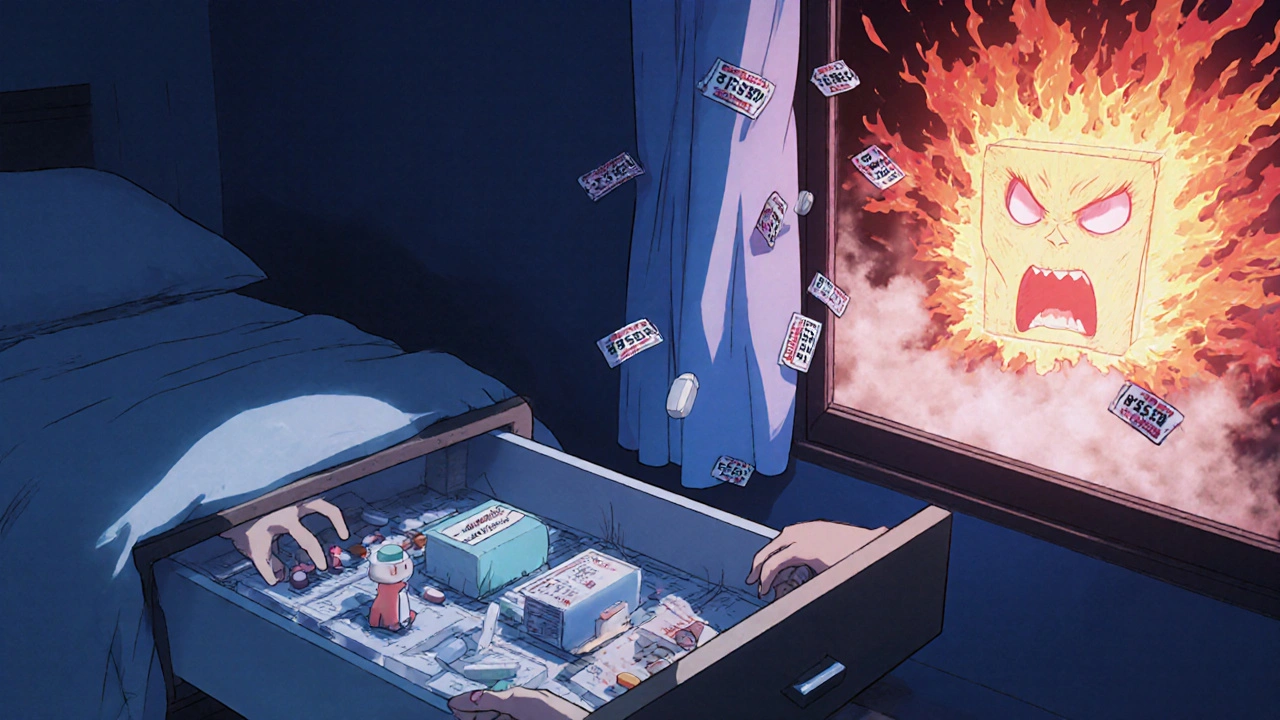
Where Should You Store Medications Instead?
The best place? A cool, dry spot away from sunlight and heat. An interior closet. A bedroom dresser. A high shelf in the hallway. Anywhere that stays between 59°F and 77°F, with low humidity and no direct sunlight. Avoid cars, window sills, and kitchen cabinets. Cars get too hot in summer. Kitchen cabinets get steam from the stove. Both are just as bad as the bathroom. If your medicine needs refrigeration-like insulin, some eye drops, or certain antibiotics-keep it in the fridge, but not in the door. The door swings open too often. Put it on a middle shelf, in a sealed container, and label it clearly so no one mistakes it for yogurt. Use airtight containers if you’re worried about moisture. Some pharmacies now include desiccant packets in bottles to absorb humidity. That’s helpful-but it’s not a fix for a steamy bathroom.What About Expired or Unused Medications?
Don’t flush them. Don’t throw them in the trash. Don’t leave them in a damp cabinet until they’re moldy. The safest way to dispose of old or unused meds is through a drug take-back program. Many pharmacies, hospitals, and police stations offer free drop-off bins. The EPA estimates that 46% of medications entering waterways come from improper disposal-like flushing or tossing them in the trash. If no take-back program is available, mix pills with coffee grounds or cat litter, seal them in a plastic bag, and throw them in the trash. Remove labels to protect your privacy. Never leave pills in their original bottle in the garbage.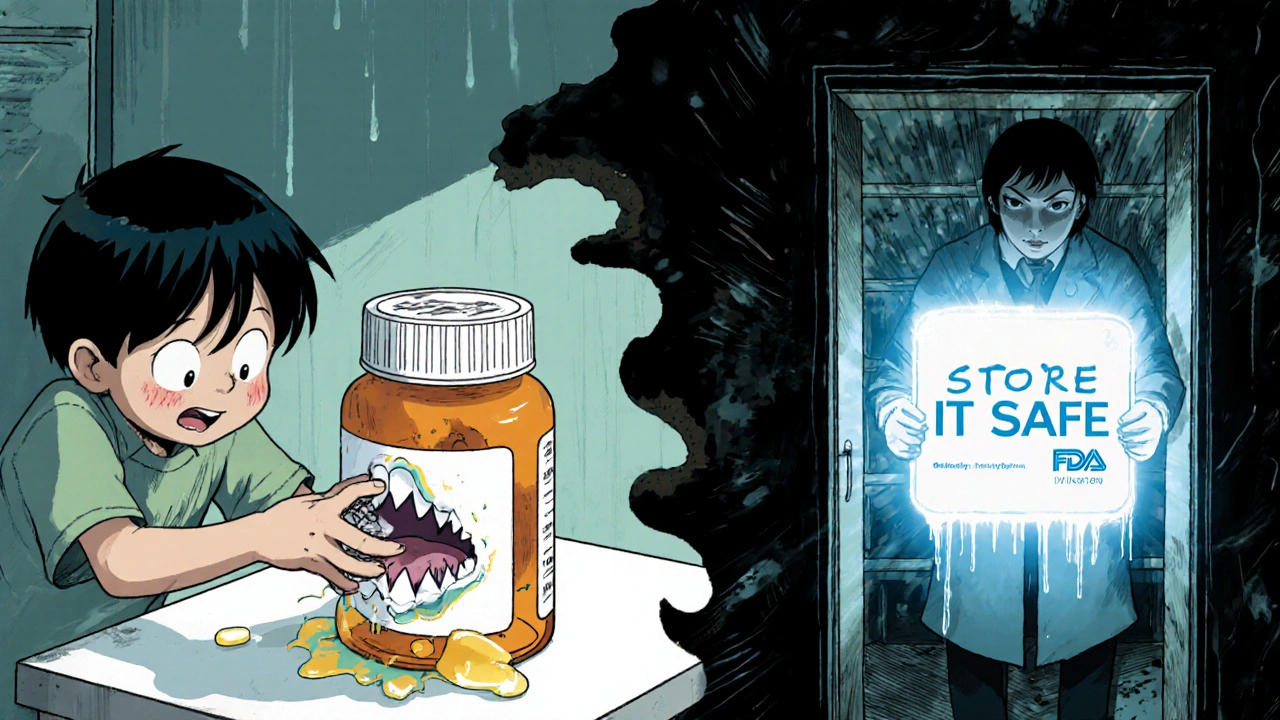
How to Check If Your Medicine Is Still Good
Look at the expiration date. But don’t assume it’s safe just because it’s not expired. Check for physical changes:- Tablets that are cracked, discolored, or sticky
- Capsules that are leaking or deformed
- Liquids that are cloudy, separated, or have particles
- Patches that have lost their stickiness
- Inhalers that feel lighter or don’t spray properly
It’s Not Just You-Everyone’s Doing It
Despite all the warnings, 68% of Americans still keep their meds in the bathroom, according to a 2023 survey by First Databank. Even though 89% of them know it’s a bad idea. Why? Because it’s tradition. Medicine cabinets were installed in bathrooms in the 1920s. We’ve just kept doing it. But times have changed. Pills today are more sensitive. Homes are more complex. Kids, pets, and visitors are everywhere. Pharmacies are trying to help. Since 2015, 73% of prescription bottles now include storage instructions-up from 41%. The American Pharmacists Association launched “Store It Safe” in 2022, handing out over a million brochures. Medication apps now remind you to check your storage conditions. And new smart cabinets can alert you via phone if the temperature rises. But none of that matters if you don’t move your meds.What to Do Right Now
Here’s your simple action plan:- Walk to your bathroom. Open the medicine cabinet.
- Take out every pill, patch, inhaler, and bottle.
- Check expiration dates and look for physical damage.
- Throw out anything expired, discolored, or sticky.
- Put the rest in a sealed container and move it to a cool, dry place-like a bedroom drawer or closet shelf.
- Lock it if you have kids, teens, or visitors in your home.
- Find a take-back location for unused meds. Use the DEA’s website or ask your pharmacy.
Can I store medications in the fridge instead of the bathroom?
Only if the label says to. Most medications don’t need refrigeration. Storing them in the fridge unnecessarily can cause condensation when you take them out, which introduces moisture. If your medicine does require refrigeration-like insulin or certain eye drops-keep it on a middle shelf, not the door, and use a sealed container to prevent moisture buildup.
What if I don’t have a closet or drawer to store meds?
Use a locked storage box. You don’t need a fancy cabinet. A plastic bin with a latch, a small lockbox from a hardware store, or even a locked kitchen cabinet (if it’s away from the stove) works. The goal is to keep meds cool, dry, and out of reach-not to buy expensive equipment.
Is it okay to keep a few pills in my purse or car for emergencies?
Only for short-term use. Heat in a car can hit 140°F in summer. Pills in a purse can get crushed or exposed to moisture. If you need meds on the go, keep a small, sealed container with just a few doses. Replace them every month. Never rely on pills stored in your car for chronic conditions like heart disease or epilepsy.
How often should I check my medication storage?
Every three months. That’s when humidity and temperature changes start to add up. Take a quick look at your meds. Check for changes in color, texture, or smell. If anything looks off, toss it. Don’t wait for the expiration date.
Do over-the-counter meds need the same care as prescription drugs?
Yes. Painkillers, antihistamines, and even vitamins can lose potency in heat and humidity. A degraded pain reliever might not work when you need it. A weak antihistamine could fail during an allergic reaction. Treat all medications the same-store them cool, dry, and secure.



